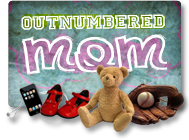“Come close to me,” Joseph said to his brothers (Gen. 45:4).
The brothers who had considered killing him.
Who discussed leaving him in a well to die.
The brothers who sold him to a slave trader.
Yet when they stood before him in need, not knowing this official was their brother, Joseph made a choice.
He chose to forgive.
On Saturday I participated in a new meme to me (Saturday Centuris), and the prompt was “The wall was built long ago.” That short little journey into prose took me to the land where forgiveness stands on one side and bitterness on the other. Then Sunday morning Pastor Larry drove it home with his observations about Joseph and forgiveness.
Pastor outlined five lessons we can learn about forgiveness from Joseph:
1. Forgiveness does you a favor. When we refuse to forgive, we often talk about fairness. We may think, “How fair is it for that person to be forgiven when they’ve caused so much hurt?” But consider this: How fair is it for them to continue to hurt you? I finished a novel this afternoon in which a character said, “I will no longer give the past any power to ruin my present and future.”
2. Forgiveness requires meekness, not weakness. So often we see the one who forgives as being weak, being the first to give in. Weakness doesn’t forgive; weakness can do nothing. Meekness, on the other hand, can do, but it chooses not to. Pastor said this morning that the Greek word for meek is the word used in speaking of bridling a horse. Meekness is power under control. Forgiveness isn’t weak; it’s making a controlled effort to do the right thing.
3. One who forgives should not be a fool. Interestingly enough, Joseph sent his brothers back to tell his father the news that he was alive; he didn’t offer to ride off with them. These were, remember, the brothers who had sold him into slavery. Wisdom told Joseph not to place himself in a vulnerable position with those who had hurt him.
4. Forgiveness means never having to hear “I’m sorry.” (No, that’s not a quote from the 70s movie, Love Story.) We can fully forgive without having to hear the words, “I’m sorry.” While we were yet sinners, Christ died for us (Romans 5:8). He didn’t wait to hear “I’m sorry” first; He willingly extended forgiveness from the cross.
5. Forgiveness is a journey. For Joseph, this was a journey of 25 to 30 years. Yes, sometimes forgiveness can take time. And time heals; I can attest to that. We forgive to the limit that we can; we learn and grow closer to the Lord, and then we forgive some more.
There’s a chapter in I'm Outnumbered called “A Band of Brothers.” I open that chapter with the story of Joseph and his brothers, and to paraphrase myself a bit, I write:
“The application for today’s mom? [Insert woman, if it works better for you.]
Consider Joseph’s words to his brothers: ‘You intended to harm me, but God intended it for good, to accomplish . . . the saving of many lives’ (Gen. 50:20). No matter where you are in the parenting marathon [in life] or what has gone on before, God is able to take it all and use it for good . . .”
Yes, He is able. But first, we have to let go. We have to open our hands and give it up.
We have to take the first step on that journey of forgiveness.
Linking up today with Michelle at Graceful for Hear it on Sunday, Use it on Monday.





 Put this button on your website or blog by copying and pasting the code below:
Put this button on your website or blog by copying and pasting the code below:





